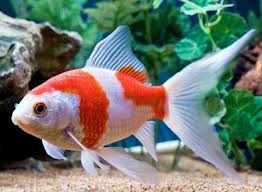This Forum will close on Wednesday 27 March, 2024. Please refer to the announcement on the Discussions page for further detail.
Any tips to reduce the ant population?
 julie 7
Posts: 11
julie 7
Posts: 11
My garden - the lawn, beds, patio, stone walls, compost bin and wormery - are over-run by black ants. They have been no bother so I've left them over the years but there are so many now and I am noticing a massive increase in the aphid population and never see any ladybirds anymore (I used to get loads). I don't like to use any pesticides in the garden and was hoping nematodes would reduce the population; but researching it, it seems they just make the ant population move on. My worry is - where would they all go (another part of the garden? my house?). Does anyone have any ideas? I am happy to live with some ants, I just feel I need to restore the balance (and get some ladybirds back).
0
Posts
As Edd says, lots of water as they like dry soils and pots.
Failing that, there are smells they loathe and that make them move on. Ty watering bad spots with a solution of one small bottle of essential oil of cloves in 10 litres of water and pour that over the affected plant or area.
You can get the oil of cloves at pharmacies and health shops.
Thanks all. But if I'm targeting the aphids first - any tips on that? I've used an organic product call Bug Clear before (safe for bees and ladybirds) but it made the leaves of my sweet peas crinkle up. I've tried plain old washing up liquid (diluted) on my honeysuckle but that's going the same way.
Re the ants, I saw this supposedly natural product: http://www.neudorff.co.uk/products/ant-killer-granules.html though generally I don't like killing things (aphids always accepted ... and vine weevil grubs). Does anyone know anything about it or had experience using it?
If I do find aphids in great numbers, I squish them with my fingers or blast them off with spray from the hosepipe. It pays to wait for the ladybirds and hover flies and birds to come and eat them.
Ants do farm aphids for their sugar secretions to feed their own babies so deal with the ants and you'll reduce your aphid problem.
Edd, I find that Obelixx isn't wrong. There's a bit of both - ant's have been known to carry young aphids to plants. Certainly true in my garden, I rarely had aphids but I had a lot of ants. My aphid problem has gone out of control in just a couple of years, and I do think it's because of help from the ants.
Chicken and egg situation
We find that encouraging bluetits into the garden has really cut down on the number of aphids - at this time of year the rose bushes, clematis, aquilegias etc are all regularly visited by the bluetit families and we really don't have an aphid problem. We have a few ants in the (sandy) lawn in the summer, but never enough to cause a problem - as Edd suggests if there in an area where we don't want them we water them and encourage them to move on
Gardening in Central Norfolk on improved gritty moraine over chalk ... free-draining.
' ANTS OUT!'
simple yet to the point
' YOU GOT LOTS OF LEGS, SO USE THEM!'
A bit of humour to lighten the mood
Perhaps we could domesticate them? They could be very useful ...
taking stuff to the compost heap
Gardening in Central Norfolk on improved gritty moraine over chalk ... free-draining.
Or darren636 I could just sit down and reason with them (maybe discretely mention 'family planning'..) If only ...
I'll try attacking from both ends and see how it goes. Thanks.
Ah thanks - is it any bar of soap or a particular type?
Studies have been done by all sorts of august bodies and scientists. Ants farm aphids for their secretions and they will actively fight off natural predators such as hoverflies and ladybirds to protect their food source. They will move aphids around to new plants to keep the honeydew coming.
Ants take advantage of any aphids they find and help keep them safe to reproduce in huge numbers so they get more food. Aphids reproduce all by themselves ao ants only need one aphid to start a whole new colony and then multiply those around the garden.
Deal with the ants, encourage tits to feed in your garden and encourage hoverflies and ladybirds by growing plants they like and you will get a manageable balance without nasty pesticides.